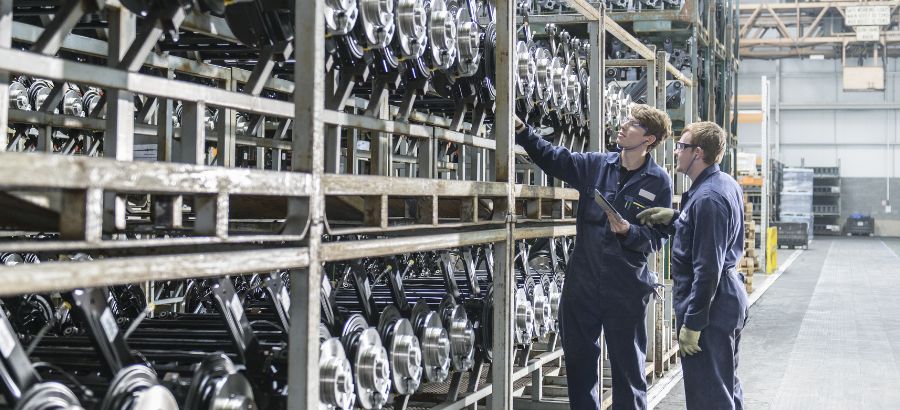How can a manufacturing business today become an intelligent and automated ecosystem – a smart factory that drives productivity, performance, and profitability?
Despite external challenges such as economic conditions, fluctuating customer preferences and unexpected global events that change the way businesses perform, the manufacturing industry continues to experience growth. The more technology shifts manufacturing structures, systems and strategies, the more business-critical ERP becomes, and proper techniques are needed to make processes more efficient.
Manufacturing businesses – many of which have highly specialized requirements – need to look at the value of ERP strategically. Even though there are many benefits that come with digitalising manufacturing capabilities, implementing a new system can be a difficult task, regardless of industry or company size. Smaller manufacturers, for example, have to consider the costs as challenges can become magnified as a business expands. Will your ERP system be modular enough to accommodate scale? An ERP system drives most of a company’s core business functions which means decision makers need to research a system’s capabilities across a wide range of functionalities to determine its value as they move to the factory of the future.
For the manufacturing business as they transform, the value of ERP begins with:
Bespoke solutions for smart factory
It’s no secret that the business that performs the best, has the best partners. No business can operate alone which is why an ERP strategy should align with a company’s core capabilities. From the top floor to the show floor, the manufacturing industry is becoming smarter, faster and more efficient.
A smarter supply chain with smart factory
Thanks to globalisation, anyone can become a worldwide player – and that presents both an opportunity and a challenge. Smart manufacturing without a smart supply chain is a suboptimal solution. An ERP system provides an opportunity to create intelligent, analytics-driven and next-generation supply chains.
A system overhaul for smart factory
Automation is not only for the enterprise, it helps free up employees tasked with manual workloads to gain better use of their time. Replacing a legacy system – one that was manually managed – with increased functionality and analytics will allow best practise material management throughout the company.
Eliminate fragmentation
Using numerous software systems from department to department hinder growth. Fragmented software systems don’t ‘talk’ to one another and have to be manually reconciled. Instead, an ERP system can accommodate product offerings and manufacturing volume for scale – and even better, in one platform with real-time data, visual tools and analytics.
Clear, organised, automated
How can manufacturers help to diversify their product line without bogging down planning and purchasing? ERP introduces efficiency into the operation that extends throughout the manufacturing process and that means core business functions can operate with manufacturing efficiency (and with the right level of material availability).
Customer satisfaction
No two manufacturing industries are exactly alike, and customers today cannot be expected to consume what is manufactured. With the right ERP system in place to connect data throughout the enterprise, a manufacturer can become customer-driven. ERP helps to shift businesses from pushing what it sells, to enabling what a client needs.
In order to thrive in digital-first world, the value that comes with a robust and right-sized ERP system cannot be overlooked. Ultimately, the ERP you implement will determine how transformation is driven across your manufacturing business and when all of your core systems are aligned, that’s where the magic happens.







